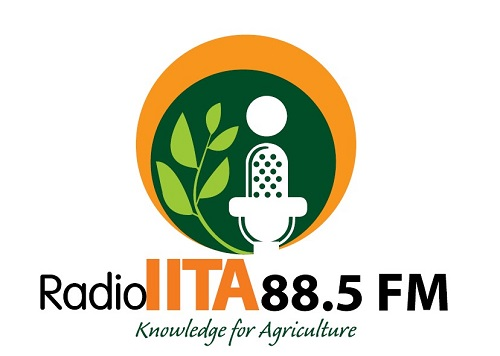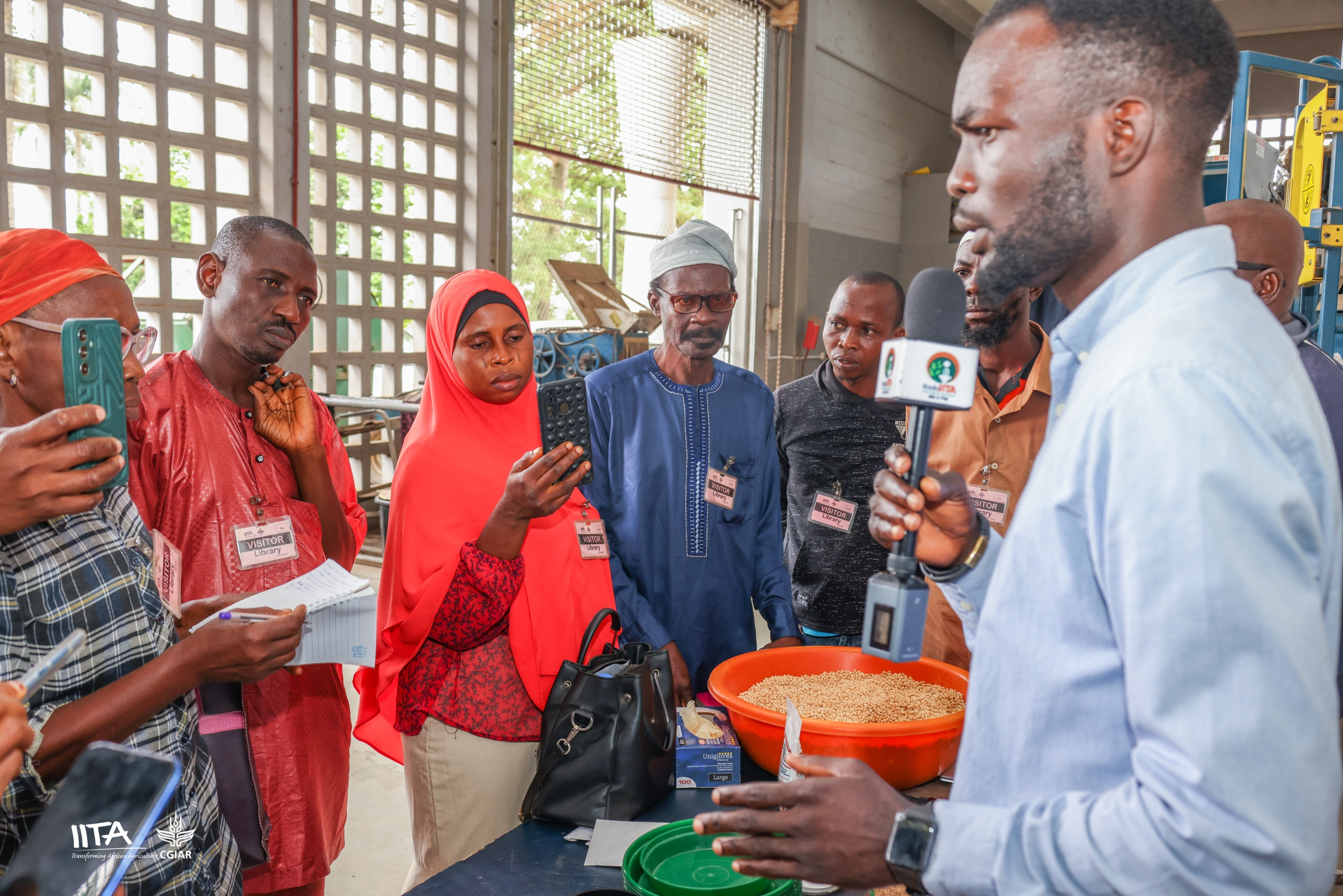Soybean farming provides a key source of protein for human and animal consumption. It comprises 40% protein, 20% oil, 30% carbohydrates, and excellent dietary fiber, vitamins, and minerals.
Due to its versatility and huge potential to increase farmers’ livelihoods, radio IITA recently organized another edition of its soybean outreach to further bolster farmers’ skills and expose them to best practices that would enable their farming to be more efficient.
At the outreach program, the farmer received comprehensive training in advanced agronomic techniques and was taught the proper application of IITA rhizobia inoculant Nodumax, an innovation designed to enhance yield.
The IITA Soybean unit, led by Dr. Abush Abebe, started by explaining to the farmers the reasons for the comparatively low yield in Nigeria and attributed the occurrence to deficiency and a knowledge gap.
“Farmers need to be properly trained in soybean production; then they will know what, when, and how to plant for the utmost result.”
“It begins with properly selecting the varieties to plant, studying the environment, adopting the best agronomic practices, and harnessing the right technology to optimize yield. Farmers must strive to optimize these factors, not just focus on eliminating limitations like pests and diseases. They must learn to exploit the plant itself. These are key steps to be taken before planting itself,” he stressed.
During the demonstration session, Kehinde Olabode, a Research Supervisor with the soybean unit, taught the farmers soybean variety identification and their yield potentials and dissuaded erroneous practices that often compromise farmers’ productivity.
Olabode further explained the importance of knowing the right planting dates, close row spacing that can smother weeds, correct and timely application of phosphorus fertilizers, and how to conduct the SEED GERMINATION TEST. This test enables farmers to pre-determine the seeds expected to grow and produce plants in the field.
The program featured an interactive Q&A session where farmers exchanged insights and sought advice on their most pressing challenges.
Through these outreaches, RadioIITA aims to foster the widespread adoption of IITA technologies for Africa’s economic growth and prosperity.
See training video: https://www.youtube.com/watch?v=iQeWM9JkSdE&t=84s
Contributed by Anu Oyeleye



